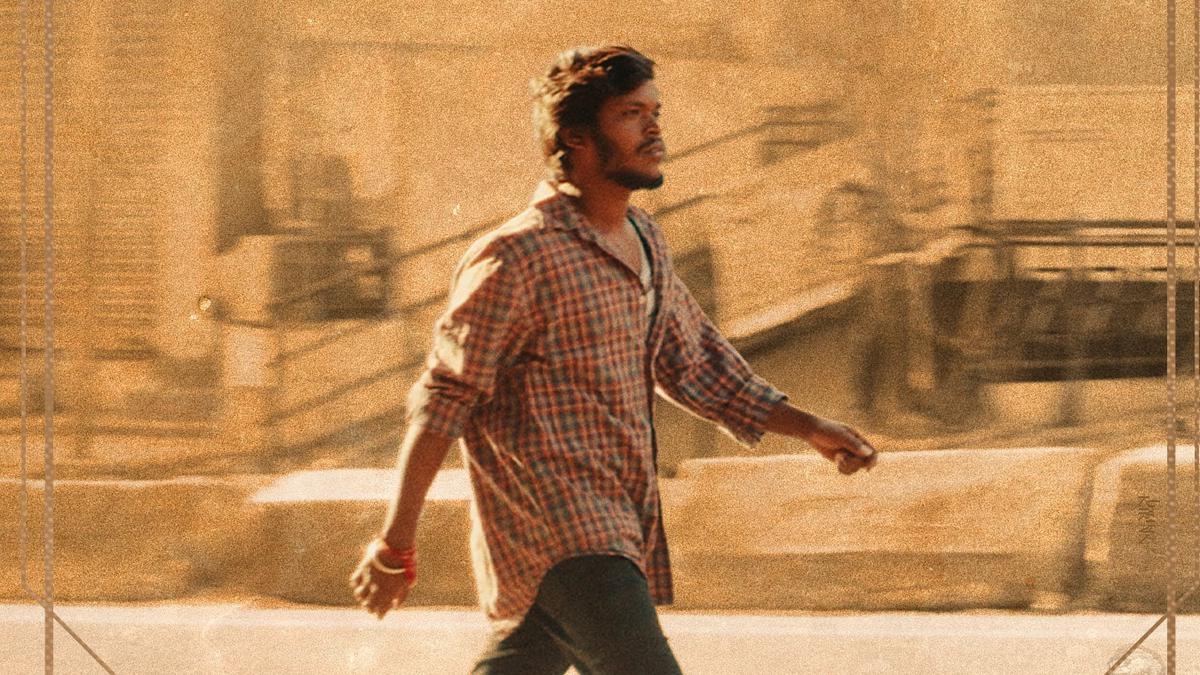
‘Double Engine’ movie review: An unhinged coming-of-age tale from rural Telangana
The Hindu
‘Double Engine’ movie review: Rohit Penumatsa and Camp Sasi deliver an unhinged coming-of-age tale from rural Telangana. Vivek Sagar’s music is the film’s backbone
For many of us habituated to theatrical viewing of mainstream cinema, a film occasionally warrants us embracing an indie approach. There have been a handful of indie Telugu films in recent years, mirroring subcultures from pockets of Telangana and Andhra Pradesh. Most of these indie films, with an occasional exception, have still been within the broad mainstream framework in terms of having a few recognisable actors or a familiar storytelling structure. Rohit Penumatsa and Camp Sasi, aka Rohit and Sasi, who have spearheaded an indie movement in the digital space for more than a decade, push the envelope further with Double Engine, their first theatrical release.
Double Engine has a mix of amateurs and theatre actors playing characters who hail from an arid hamlet in Telangana. The broad storyline is simple. Danny (Muni Myatari), who makes a living as a shared auto driver in Hyderabad, goes back home to Tatipalli in Medak district to celebrate his 21st birthday. In a drunken stupor, his childhood friend Gopi (Bachi Ajith) tells him that he spotted a double-headed snake. Capturing the snake and selling it can fetch them a fortune. In smuggling parlance, such snakes are referred to as ‘double engine’. Accompanied by another friend Narsing (Rohit Narasimha), they take the help of snake charmer Mouli (Raju Shivaratri) and hope to realise their entrepreneurial dreams.
How Rohit and Sasi narrate this story makes all the difference. Shashank Raghavula’s visuals, with a touch of grunge and realism, give us snapshots of a day in Danny’s life. We see him ferrying passengers across Hyderabad. The passengers are as varied as they come, from those who go to work to consumers of narcotics. As he goes about his day, Danny gets to show off his swagger that is further enhanced by Vivek Sagar’s music. In fact, music is the the film’s backbone and Vivek almost presents a rock concert by deftly blending in rural folk and urban notes.
While we see a different side of Hyderabad through Danny, once the narrative shifts to Tatipalli, it’s a whole new world. The stone-walled houses with terracotta roofs appear as though they have been frozen in time, untouched by urbanisation. Danny, arriving in a contemporary bike, borrowed from a friend, creates a flutter among village vagabonds named Kishore (Sai Kiran) and Kumar (Kumar Pawan). In the village, Gopi rues that there is not much business for a mobile phone shop barring the occasional recharges for small sums.
The rural Telangana traits of alcohol consumption and meat eating are also depicted matter of factly, without overtly dwelling on it. The conversations happen as though someone placed a candid camera to record the banter between friends and family members. The sync sound recording (recording by Aditya, sound design by Teja ASGK and sound mixing by Ajith George) adds to the authenticity. The arid landscape is more than indicative of how much the natives rough it out during summer.
In the 105-minute film that comes to speed when the friends begin their hunt for the double-headed snake, there are stretches where nothing seems to happen. It is a reflection of the hunt that gets excrutiating as it progresses.
A few conversations reflect how well Sasi, who is credited with the story idea and has written the dialogues, understands the mindset of his characters. When they run out of biscuits and water and are far away from home, the boys recall the previous day’s sumptuous mutton curry served to them by Danny’s sister (Gayatri Gupta). It is a human tendency to think of the last good meal while going through a trying day.











